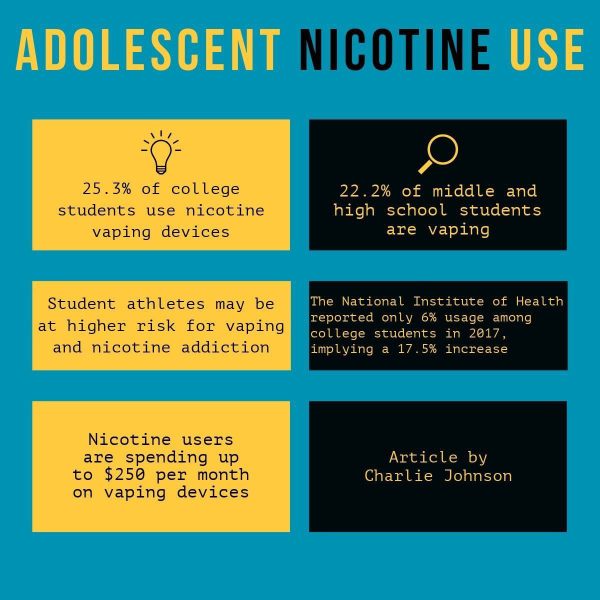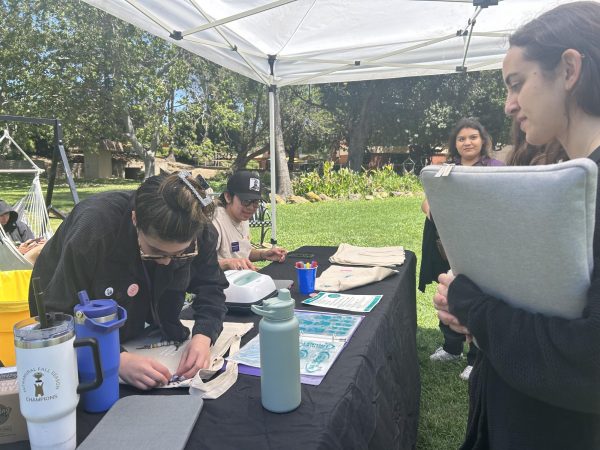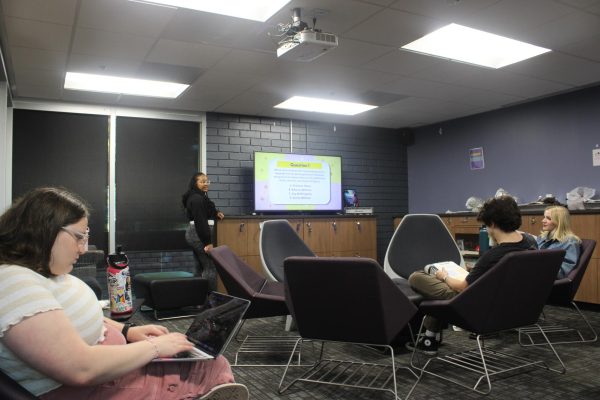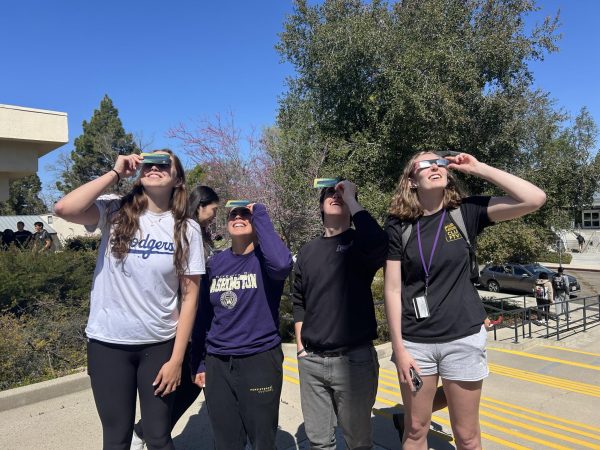Students asked to provide ‘consent across the board’ for recording of Zoom classes
February 8, 2021
Students may have noticed a form appear on their myCLU portals on Feb. 1 asking for their consent to record all Zoom classes, under the condition of waiving their Family Educational Rights and Privacy Act (FERPA) rights.
The form, issued by Academic Services, also gave students the option to deny consent.
According to FERPA, a federal privacy law that applies to educational agencies and protects students’ education records, consent must be obtained to record virtual lessons because video recordings qualify as educational records. Students are not required to have their cameras on and can deny consent to be recorded.
Previously, professors were required to ask students’ permission to record prior to any class that was being recorded.
“What we did was standardize the consent process so that students are giving consent across the board and in one way instead of it being presented in different ways,” said Maria Kohnke, associate vice president of Academic Services and Registrar, in a phone interview.
If a student consents to being recorded, they also consent to allowing their personally identifiable information like names, images and voices to be used.
“What [students] are not consenting to is for that recording to be used anywhere other than class,” Kohnke said.
As the university begins the transition to on-campus learning where 360-degree cameras are in use, Kohnke said the standardized consent form will simplify the consent process.
Kohnke said this consent form allows students to withhold consent anonymously, without the instructor knowing who agreed or declined.
In an email from Academic Services on Jan. 28, students were informed that their “name will not be released to the instructor if you do not give consent” and consent can be revoked at any time by emailing [email protected].
When a student does not consent to being recorded, there are protocols in place to protect the privacy of that student. In an email sent to the College of Arts and Sciences, Kohnke said that if a student does not consent to being recorded, their professors will be notified with a message saying, “You are not authorized to record sessions due to one or more FERPA requests for privacy.”
Kohnke said the only exception is “that there can be a need for students to have individual access to a recording and the main example for that is if someone is receiving an accommodation through Disability Support Services.”
In this case, professors would have to record their class both online and in person with the 360-degree cameras. Students receiving accommodations from DSS who require a recorded lecture must sign an additional privacy agreement. This includes agreeing to keep the content private so the student who needs the content is the only one given access.
Students who denied consent, but whose classes are being recorded to accommodate the needs of another student, have some options. Kohnke said professors should notify their classes that anyone who does not feel comfortable being recorded is free to turn their cameras off. If participation is part of the class grade, it will not be affected if someone chooses to have their camera off.
If a student denies consent and is attending a class with a 360-degree camera, there is no escaping the camera if teachers need to record for a DSS student. This is where it becomes the responsibility of the student receiving the content to uphold their end of their privacy agreement. In the case that a student denied consent and there is not someone in the class with a need for a recording, professors are not allowed to record.
In a phone interview, senior music production major Oliver Roveda said he doesn’t have any real problem with consenting to being recorded. He said if his class was being recorded for a student who needed a recording and it helped them, then he doesn’t have a problem with appearing in the background.
“[Some] classes don’t even require your camera to be on,” Roveda said. “But even if I was appearing in the background, it’s just being in the background. So, I don’t have any problem with that.”










